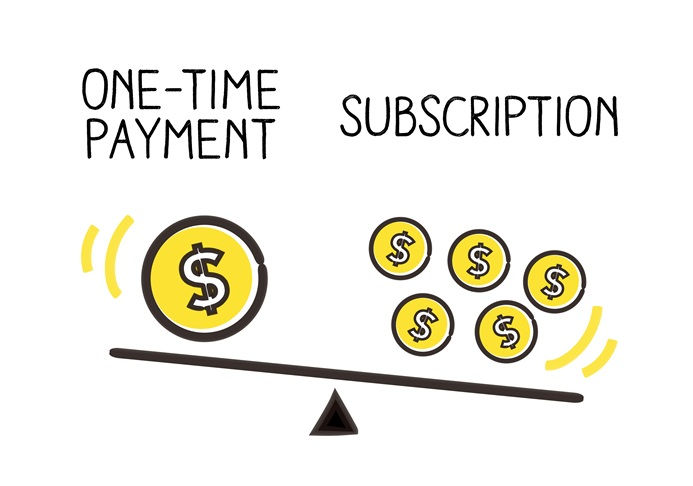What Your Spending Says About You: Money Personalities and Values
- Daniel H. Satz, MS, CFP®

- Sep 9, 2025
- 4 min read

Key Takeaways
There are five main money personalities. Read on to see where you fit.
Financial planning isn't about just saying no to spending. It's about saying yes to what matters.
Keeping up with the Joneses is usually a game you cannot win. Make sure your spending aligns with your values.
Lately, I’ve been thinking more and more about the psychology of money, and what spending says about people's values. It's a very personal and important area of personal finance that’s been coming up more frequently in our client conversations. People want to think that their financial decisions are based on logic. But more often than not, those decisions are emotional. For instance, many people know they need to keep a certain amount of ready cash in a “rainy day” fund so they’ll have that money available for emergencies and other unplanned major expenses. But when it comes time to tap that cash, it can be very stressful and difficult to do so.
Why Emotions Matter in Money Decisions
I can relate. When I was a teenager, I saved and saved from my summer jobs until I had enough to buy my first car. It was essentially a junker, but I was very proud of that car because it was the result of all my hard work and discipline. Then one day the car broke, and I was frustrated that I had to spend a ton of money to fix it. At that age, I certainly didn’t have an emergency fund for car repairs. I felt like I was never going to have enough money to spend on any more big purchases in the future.
5 Money Personalities
Every dollar we spend reflects our values and our habits, regardless of how much (or how little) money we have. We have found that people fit into one of five types of money personalities, each with unique challenges related to spending and saving:

1. Security Seekers feel best when they have a huge financial cushion. They save diligently and avoid all debt, which is great. But they also have a hard time letting money go, even when it would serve them well to do so. They might keep $200,000 in cash “just in case.” They have lots of insurance policies and home warranties. They like safety and predictability. But this prudence can leave them missing out on all the good things life has to offer.
2. Status Seekers are people who want to look successful. They aren’t afraid to spend beyond their means to maintain an aura of achievement and belonging. Typical purchases include high-end clothing, luxury cars, home upgrades, state-of-the-art technology, and other major outlays that boost their sense of self-worth. They believe those purchases are essential for fitting into the “right” social or professional circles.

3. Connection Seekers are people whose purchases revolve around traveling with loved ones and building memories. We have clients who think nothing of spending $50,000 to take their kids and grandkids on vacations together. Trips often include expensive dinners and excursions for the entire family, but they’ll always tell you it was worth it to have that family together and to build memories that last a lifetime. Connection seekers use their money generously to deepen family relationships and family values.
4. Growth Seekers use their money to invest in themselves. They might take online courses or go back to school in person for additional degrees and certifications. As lifelong learners, growth seekers use their money for education, exploration, and personal wellness. They often invest in life coaching or personal development, and they find value in having a purpose in life and mastering subjects that satisfy their insatiable curiosity and need for self-improvement.

5. Freedom Seekers crave flexibility and resist structure. They often make impulsive decisions, spending on spontaneous travel, starting side businesses, or buying unique properties because freedom and autonomy matter more to them than predictability. Freedom seekers may avoid long-term financial commitments because they feel like limits, not tools. Their challenge is balancing spontaneity with financial sustainability.
Aligning Spending with Values
Regardless of our money personalities, friction comes when our spending conflicts with our values. For instance, take someone who values simplicity in close relationships, but they're in a social circle or profession that makes them feel pressured to upgrade constantly. One of my clients is very successful but still drives a modest economy car. But most of her professional peers drive around in Mercedes-Benzes and Range Rovers to show their clients they’re successful enough to afford those vehicles. But spending money on status symbols that don’t bring you joy, and which don’t align with your values, can make you feel anxious and resentful. These purchases may also make you feel like you’re out of control financially, even if you’re doing fine.
Our advice is not to succumb to peer pressure unless those status symbols are essential for your professional success. In what position would you rather be: not keeping up with the Joneses or having internal conflicts with spending that conflicts with your values? You’re always better off being true to yourself.

At Novi, our job is to help clients align their spending with their values. Sometimes we must encourage clients to spend more, not less. Security seekers often feel that all spending is reckless. They continue to hoard money for fear of making a mistake. Too often, they say no to things they’d like to do because of the cost. That's where we come in. We’ll tell a security seeker: “Look, you want to travel and have these experiences. Here’s how we can make it happen.” We’ll build an annual travel budget and explain how they can travel and explore within reason, without impacting their overall financial plan.
I can’t tell you how many times a client grudgingly agreed to go on vacation abroad despite how anxious they were about the cost. Inevitably, they come back a few weeks later, completely energized, excitedly telling us how the vacation was one of the best experiences of their life. That’s extremely gratifying for us.
Conclusion
At Novi, we believe good financial planning isn't about just saying no to spending. It's about saying yes to what matters. At the end of the day, your money is just a tool. If you better understand why you spend, then the better choices you'll make on how to spend it. We’re not just here to grow portfolios. We’re here to help you live better with the money you have. Reach out any time. I’m happy to discuss. Money Personalities and Values
DAN SATZ MS, CFP® is a Partner at Novi Wealth




